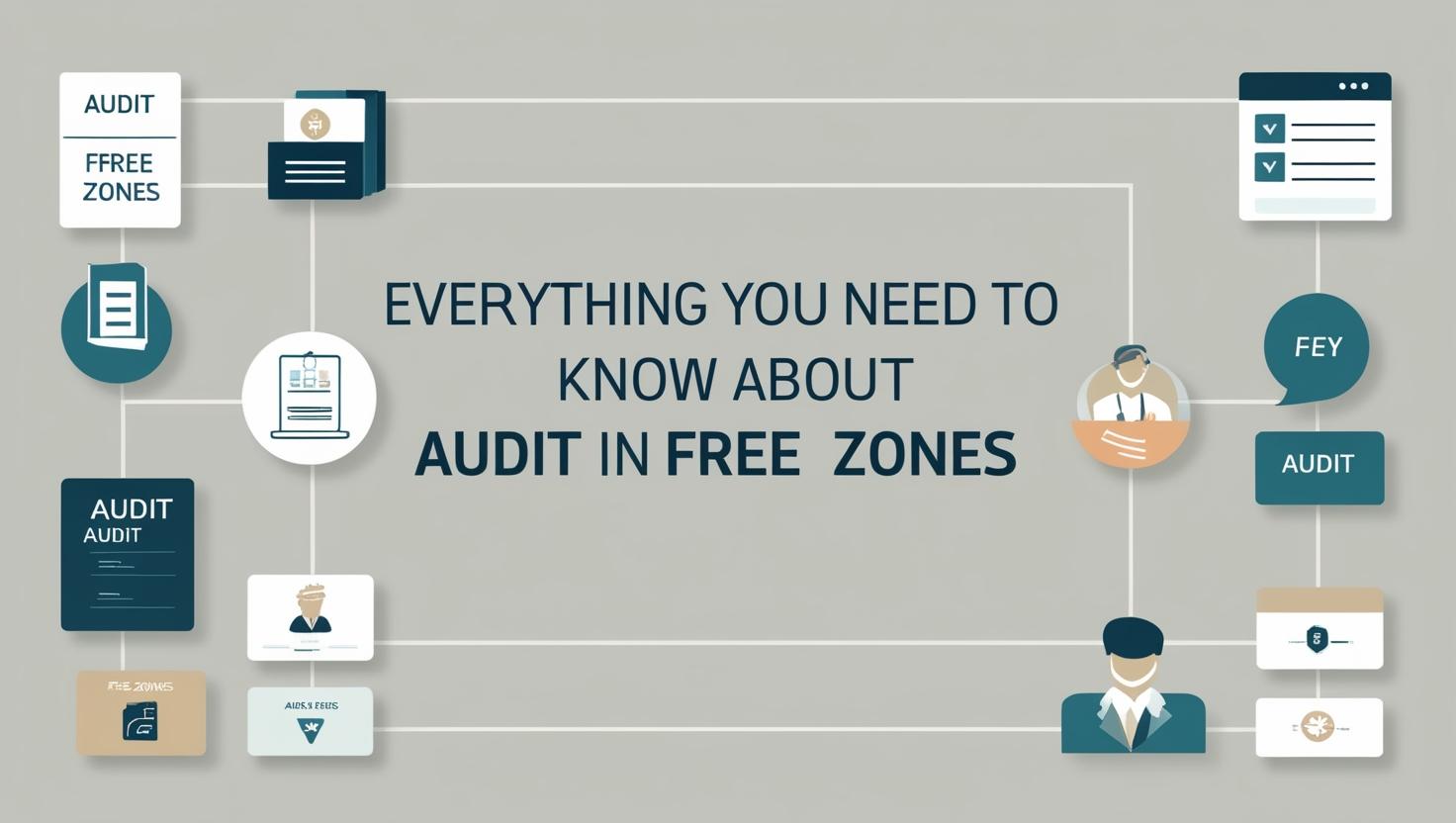 YOUNG AND RIGHT
YOUNG AND RIGHT ACCOUNTING & TAX CONSULTANCY
From corporate tax registration to audits and bookkeeping, Young & Right offers personalized solutions that keep your business compliant and stress-free. Let’s take the complexity off your plate—starting with a free consultation.
Book Your Free Consultation
UAE free zones are strategically developed economic hubs aimed at boosting international trade and attracting foreign investment. These zones offer a wide range of incentives to businesses, such as 100% foreign ownership, tax exemptions, simplified customs procedures, and complete repatriation of capital and profits. Each free zone authority operates under its own legal framework, offering tailored regulations and benefits based on the specific economic objectives of the zone.
Some of the most well-established free zones in the UAE have become key pillars of the country's economic development. These zones accommodate a wide variety of industries and support thousands of free zone companies, offering them favorable business conditions, regulatory flexibility, and strategic location advantages. Each zone has its own set of rules and compliance requirements, including working with recognized auditors such as SAIF Zone approved auditors, who help businesses meet financial and legal standards.
Key free zones in the UAE include:
However, businesses operating within UAE free zones are required to maintain accurate financial records and submit an annual audit report to stay compliant. Working with approved auditors and trusted audit firms is critical to meeting these obligations. These financial compliance requirements are enforced by each free zone authority to ensure regulatory adherence, promote financial transparency, and safeguard the integrity of the UAE’s business environment.
In the UAE, all free zone companies are required to follow mandatory audit regulations as stipulated by their respective free zone authority. The audit process is not optional—even businesses with minimal or no profit must conduct external audits annually. These regulations apply to ensure financial transparency, uphold business integrity, and maintain investor confidence across all free zones.
Every financial year, businesses must prepare and submit an audit report compiled by approved auditors or licensed audit firms. These audited financial statements must conform to International Financial Reporting Standards (IFRS) or other accounting frameworks recognized in the UAE. This standardization ensures consistency and accuracy across all reporting entities.
With the introduction of corporate tax in the UAE and ongoing VAT regulations, maintaining accurate accounting practices is more important than ever. Companies must ensure their financial data is precise and their tax filings are fully compliant with the Federal Tax Authority (FTA) requirements.
Most free zone authorities require an audited financial statement as a prerequisite for renewing business licenses. Without this, companies risk delays or even suspension of their operations.
Conducting regular annual audits strengthens financial governance. It helps prevent mismanagement, ensures legal compliance, and promotes responsible financial stewardship. For all free zone companies, transparent accounting practices and reliable audits are crucial pillars for sustainable operations.
Many entrepreneurs—particularly those launching businesses in UAE free zones for the first time—often misunderstand the significance and requirements of audits. These misconceptions can lead to compliance issues and financial penalties. Understanding the reality of audit mandatory regulations is essential for the smooth operation of all free zone companies, regardless of size or profitability. Below are some of the most common myths:
This is incorrect. Under UAE compliance rules and UAE corporate tax law, even small- and medium-sized enterprises (SMEs) operating within free zones must undergo yearly audit procedures. These audits help ensure proper financial records and alignment with legal standards throughout the financial year.
While free zone companies enjoy operational benefits, they are not exempt from compliance obligations. Each company must submit an annual audit report, maintain up-to-date financial records, and work with recognized audit firms to meet their respective free zone authority requirements.
Audits must be carried out by approved auditors, not internally by the company. Whether you're operating in JAFZA, DAFZA, Shams, or any other zone, only certified auditors—such as JAFZA approved auditors, DAFZA approved auditors, or Shams Zone approved auditors—are permitted to conduct official audits.
Profitability does not exempt a business from audit requirements. Even companies with minimal or no income are subject to audit mandatory regulations to maintain transparency and legal standing in their respective free zones.
High-quality financial reporting is essential for free zone companies operating within the Free Zone UAE landscape. Whether you're a startup or an established business, preparing accurate and timely financial statements ensures long-term sustainability, regulatory alignment, and credibility in the eyes of investors and institutions. Below are key reasons why robust financial reporting is crucial:
Proper financial reporting ensures that your business adheres to local regulations, regulatory requirements, and the rules of your specific free zone authority. Filing an audited annual financial statement in line with recognized accounting standards helps ensure compliance and avoid penalties from relevant authorities.
Transparent financial data supported by a professional audit report builds trust among investors and stakeholders. It demonstrates that your business has strong internal controls and follows proper procedures set by the free zone you operate in. This transparency is vital for attracting funding and strategic partnerships.
Financial institutions and lenders often require a detailed audit report before granting credit. A clean and verifiable audited annual financial statement helps demonstrate financial stability, especially when operating under a specific free zone authority.
Financial reporting also plays a major role in tax and VAT compliance. Accurate records, maintained throughout your own financial year, are essential for proper corporate tax declarations and filings under the UAE’s evolving tax laws.
To ensure a seamless audit in free zones, prepare the following:
These documents help the auditing company or authorized auditors review your company’s financial health accurately.
At Young and Right, we specialize in providing end-to-end audit services tailored for businesses operating in Free Zone UAE and across different free zones such as JAFZA, DAFZA, DMCC, RAKEZ, Shams, and DIFC. Our expertise goes beyond just helping clients submit audits—we focus on ensuring you fully conduct audits that meet all compliance and financial transparency standards.
Our mission is to help free zone companies avoid non-compliance risks, strengthen internal controls, and align with UAE’s evolving accounting standards and tax regulations.
We understand the audit procedures laid out by every specific free zone authority. Whether you require RAKEZ approved auditors, DIFC approved auditors, or are operating under another free zone, our team ensures you're following free zone audit protocols precisely.
From reviewing your audited financial report and VAT submissions to verifying license documentation, we deliver an accurate and fully compliant audit report that fulfills your legal obligations.
Late submissions can hinder business continuity. We ensure that every audited financial report is completed and filed on time to avoid penalties and delays in free zone trade license renewals.
No matter your business structure—whether you're a startup, SME, or large corporation—we adapt our services to meet your operational model while maintaining full compliance with accounting standards and free zone UAE regulations.
Once the audit is completed, we don’t stop there. We help you correct identified gaps, optimize financial reporting, and prepare for the next financial year, ensuring that audits play a strategic role in your long-term success.
Performing an audit in a free zone is not just a requirement—it's a strategic business practice that ensures regulatory compliance, strengthens investor trust, and supports sustainable business operations. Whether you're operating in DIFC, RAKEZ, SAIF Zone, or any other UAE free zone, working with the right audit firm like Young and Right gives you the clarity, confidence, and compliance edge your business needs.
Partner with Young and Right to meet your audit obligations, renew your license on time, and stay aligned with UAE free zone regulations—no delays, no penalties, just peace of mind.
Book a Consultation Now